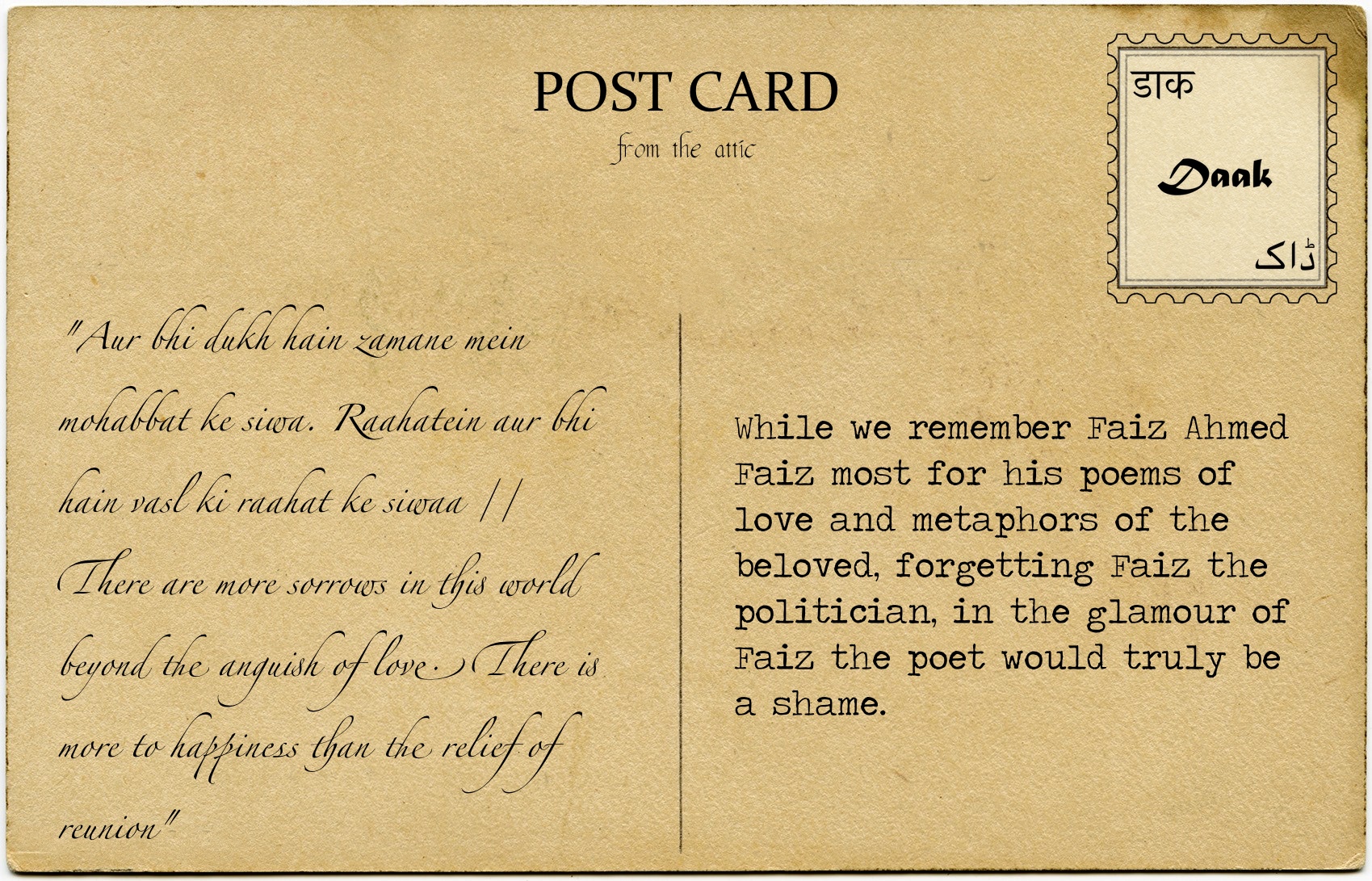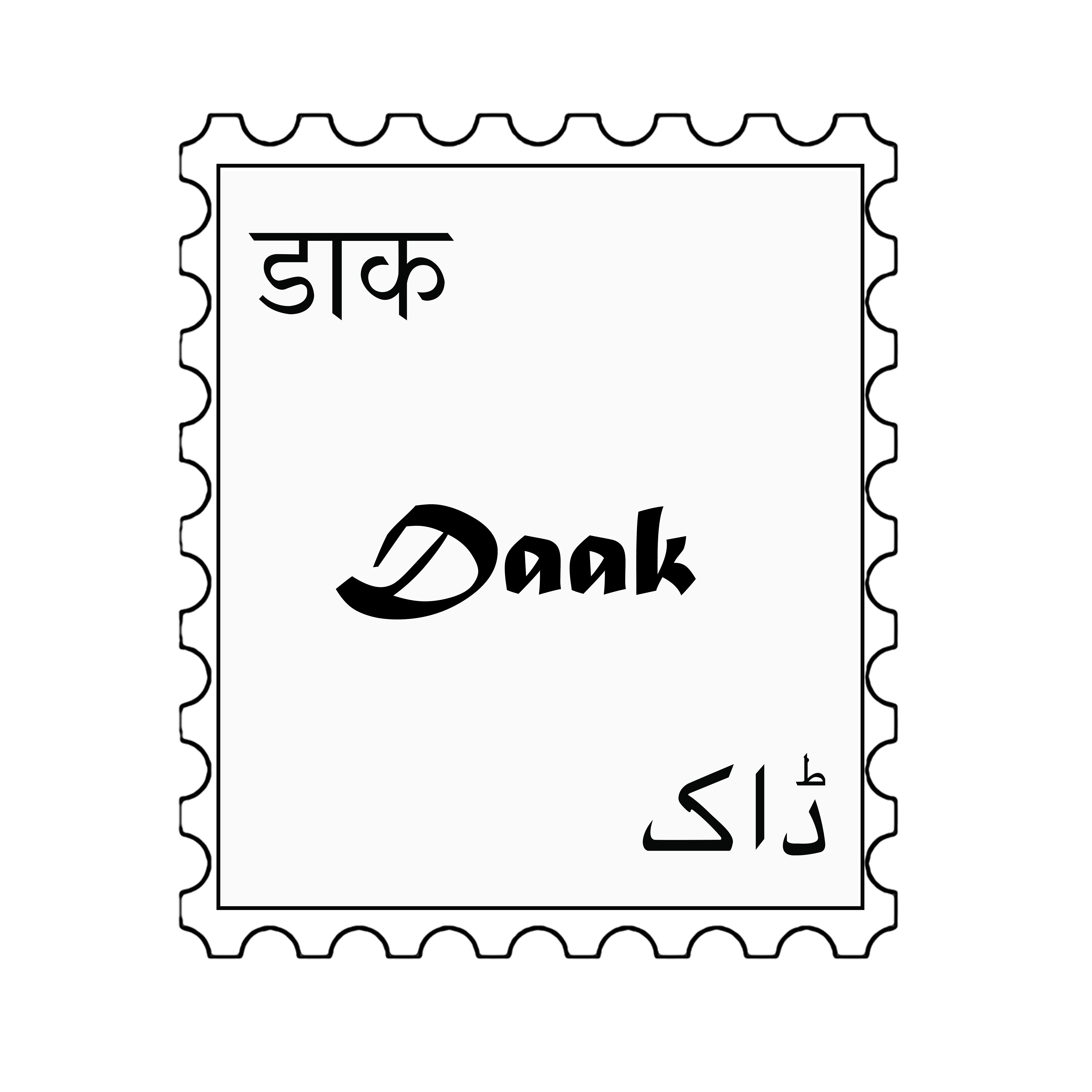
Intersecting Politics with Poetry: Faiz Ahmed Faiz’s Poem, Mujhse Pehli Si Mohabbat
Faiz Ahmed Faiz is most famous today for the many love ballads he has inspired. Yet in his own time, he was a member of the Progressive Writers Movement and an avid Marxist, often jailed for months together for his communist views in the newly formed Islamic Republic of Pakistan.
Aur bhi dukh hain zamane mein mohabbat ke siwa
Raahatein aur bhi hain vasl ki raahat ke siwa
There are other sorrows in this world beyond the anguish of love.
There is more to happiness than the relief of reunion.
Arguably his most famous ghazal, “Mujhse Pehli Si Mohabbat” (My Love, Do Not Ask From Me the Love We Shared Before), is often recounted for its beginning paragraphs as it talks nostalgically of an old love now almost stale. Yet from beautiful imagery of the beloved’s eyes and lamentations of love, it effortlessly moves to the lamentations of the human condition, talking of social evils and inequity of wealth. It is easy to lose sight of Faiz the revolutionary and activist in Faiz the poet, but his politics must not be ignored.
Teri surat se hai aalam mein bahaaron ko sabaat
Teri aankhon ke siwa duniya mein rakhkha kya hai
Your countenance is the assurance of perennial spring, everywhere.
For what is the worth of this world but the sight of your eyes?
Resham-o-atlas-o-kam khwaab mein bunvaaye hue
Khaak mein lithade hue, khoon mein nehlaaye hue
Jism nikle hue amraaz ke tannooron se
While draped in silk, satin and brocade,
Everywhere, in alleys and marketplaces, young flesh is up for sale.
Dragged in the dirt, bathed in blood, bodies emerge from furnaces of pestilence.
Laut jaati hai udhar ko bhi nazar kya kijye
My eyes can’t look away, what should I do?
Defying the rosy picture painted by nationalist narratives, Faiz seeks to uncover the brutalities of human experience. Few are able to bring such beauty into the hideous portraits of lived realities and fewer still are able to transcend multiple themes in poetry. Forgetting Faiz the politician in the glamour of Faiz the poet would truly be a shame.
Read the full poem and translation here.

Leave a Reply